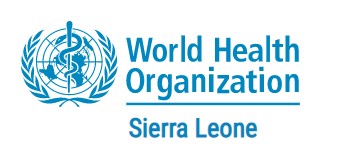Sierra Leone is deploying a range of measures to control and end an outbreak of mpox in which 18 cases have so far been reported since the disease was confirmed on 13 January 2025.
The National Public Health Agency, with support from partners, including World Health Organization (WHO), is stepping up disease surveillance to swiftly detect cases, provide care and prevent further spread of infection. With technical and logistical support from WHO, emergency public health workers are enhancing active case search and investigation for a more effective outbreak response.
Sierra Leone has been reinforcing preparedness and capacity to respond to public health emergencies in recent years. In November 2024, WHO supported the training of 65 health workers and laboratory personnel in diagnostic procedures and sample collection. Additionally, 160 health workers were trained on integrated approach covering surveillance, case management, infection prevention and control, laboratory practices, and risk communication and community engagement. This proactive approach ensured frontline workers were prepared to manage the mpox outbreak from the onset.
To further help curb the spread of the disease, a consignment of 61 300 vaccine doses is expected to be delivered in the coming weeks in Sierra Leone thanks to support from WHO and Gavi, the Vaccine Alliance, Africa Centers for Disease Control and Prevention and UNICEF. These organizations will cover operational costs for the vaccination targeting at-risk people, including health workers. Additionally, efforts, coordinated by partners, including UNICEF, are underway to increase public awareness about the disease as well as encourage preventive measures and the importance of seeking medical care.
WHO has already delivered over US$ 38 000 worth of essential laboratory supplies and personal protective equipment, including gloves, gowns, aprons, face shields, biohazard waste bags, and infrared thermometers. Supplies also included genomics sequencing reagents, PCR kits for 400 tests, GeneXpert cartridges for 50 tests, and genomic sequencing kits for 45 tests.
Clinical care is also being reinforced. WHO has procured treatment kits for 20 inpatients and 180 outpatients and is providing technical expertise to clinicians and other responders by assisting in the planning of response activities and developing case management guidelines and training programmes.
“Despite numerous challenges, WHO has successfully mobilized resources at all levels to deliver vital commodities, including vaccines,” says Dr George Ameh, WHO Representative in Sierra Leone. “We will continue to support the country to bring this current outbreak under control.”
An upsurge of mpox (formerly known as monkeypox) in the Democratic Republic of the Congo and its spread to neighbouring countries was declared a public health emergency of international concern on 14 August 2024. At total of 22 countries in the African region have reported cases since 2024, of which 12 currently have active outbreaks.
WHO and partner organizations are working closely with the affected countries to contain these outbreaks. According to Professor Foday Sahr, the Director of Sierra Leone’s National Public Health Agency, the support by WHO “continues to ensure our ministry and agency succeed in safeguarding the health of our citizens.”
Mpox is a viral disease caused by an orthopoxvirus. It spreads mainly through close contact with someone who has mpox, causing a painful rash, enlarged lymph nodes, and fever. In severe cases, the disease can be deadly.
World Health Organization – Sierra Leone.







OTHER ARTICLES
Editorial — Prevent, inform, and act for women’s health in Africa
Kenya : Government Prioritises Maternal Health and Strengthens Support for Community Health Promoters
Strengthening pandemic prevention, preparedness, and response capacities in Senegal using the “One Health” approach